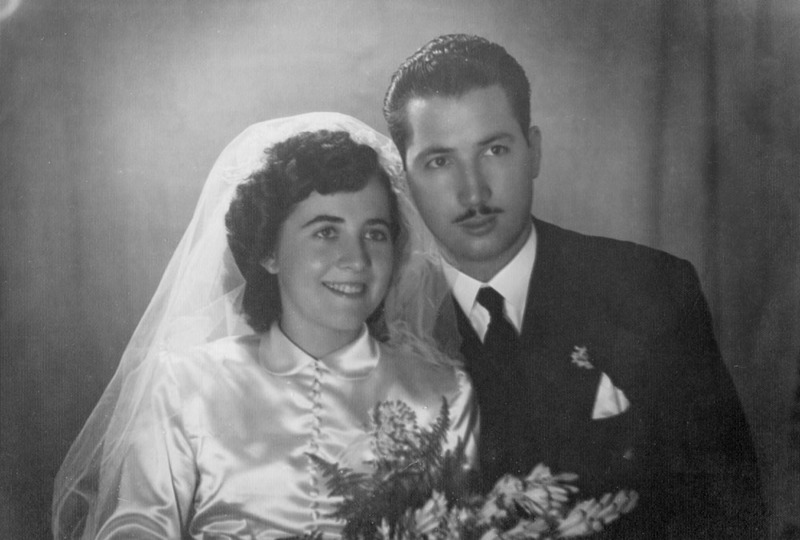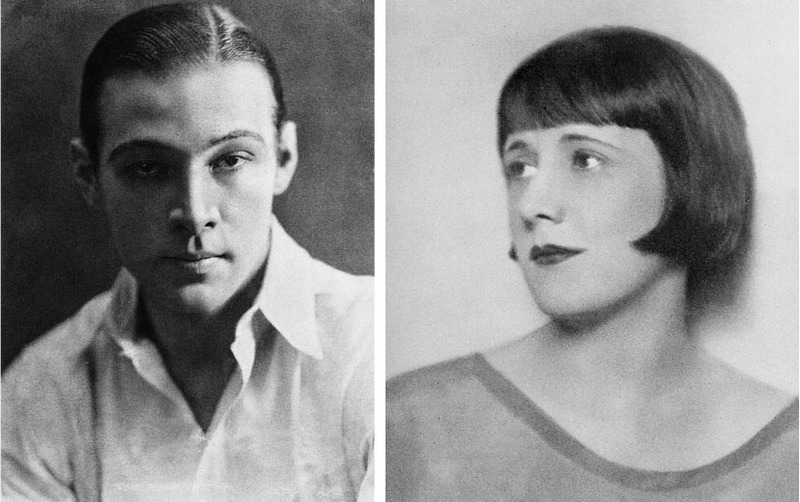AMERICAN WEDDINGS BLOG
Stay up to date with the latest wedding ceremony trends, script writing inspiration, tips and advice for first-time officiants, and news that matters to couples and wedding ministers.
Stay up to date with the latest wedding ceremony trends, script writing inspiration, tips and advice for first-time officiants, and news that matters to couples and wedding ministers.
Published Wednesday, Oct. 23rd, 2024
Last updated Thursday, Jul. 17th, 2025

A recent article titled Broke and Lonely? “Lavender Marriage” May Be For You!, caught my eye last week, and not (just) because I’m broke and lonely – but because I’ve spent a lot of time thinking and writing about platonic marriage over the past few years.
Platonic marriage, if you’re new to the idea, is a nontraditional marriage between two people who are just friends. And with the current costs of housing, healthcare, childcare, food, and everything else, the idea is becoming increasingly popular with younger generations. Even for older millennials like me, the idea of teaming up with a bestie to make a better life makes a lot of sense.
AMM talks about platonic marriages and how wedding officiants can perform them here: Platonic Marriage: Why Friends Say ‘I Do’ & How to Officiate These Unconventional Ceremonies
Think friends with benefits – but instead of late night ‘You up?’ texts, platonic marriage comes with actual benefits: Spousal social security benefits, pooled retirement, medical insurance, increased homeownership opportunities, shared childcare costs, and long term emotional support and security. That’s the kind of friends-with-benefits situation we really need, and Gen Z knows it.
Until recently, though, platonic marriages like these didn’t have a catchy, hashtag-able name, which might have been holding them back from the mainstream.
‘Platonic partnership’ sounds too formal, and ‘platonic life partner’ is too long. ‘Hetero life mates’ isn’t inclusive enough, for the same reasons that ‘queerplatonic partners’ isn’t. These terms all get at the same thing – a committed, long term partnership between friends that isn’t romantic or sexual – but they aren’t really marketable.
That’s where Gen Z comes in. Leave it to the social media generation to repurpose an old term for a new trend: young people are redefining the term 'lavender marriage,' popular in queer circles a hundred years ago, to describe modern platonic marriages.
Here's what you to know about modern lavender marriage!

Historically, lavender marriages were those in which one or both partners were gay. Sometimes, gay men and lesbians would marry each other to avoid speculation about their sexuality, to raise children together, or for the safety and security that a straight-presenting marriage could bring. Other times, only one partner was part of the LGBTQ+ community, while the other was straight. Now, definitions of 'lavender marriage' are changing. (Photo: Juanmonino / iStock)
The term ‘lavender marriage’ has been around since the early 1900s and was used almost exclusively within LGBTQ+ communities to describe a legal marriage between opposite-gender partners in which one or both partners is gay.
Most people entered lavender marriages to conceal their sexuality – for their safety, for career advancement, or because of family pressure and societal expectations. In some lavender marriages, both partners knew they were in a platonic marriage and there was a general understanding that partners are free to date outside the union, but this ideal wasn't always achieved.
Related: Short Inclusive LGBTQ+ Wedding Ceremony Script
The most famous lavender marriages are probably the Old Hollywood pairings – Rock Hudson and his agent’s secretary Phyllis Gates; or silent film stars Rudolph Valentino and Jean Acker (one of the earliest silver-screen sex symbols and who was widely rumored to be a lesbian belonging to Hollywood’s fabled ‘Sewing Circle’); or Cary Grant and any of his five wives.
But lavender marriages aren’t just for actors and politicians; they happened throughout history and are still common today in many countries and cultures where same-sex marriage isn’t allowed.

One of the first of the rumored Old Hollywood lavender marriages was between silent film stars Rudolph Valentino and Jean Acker, who married in 1919. Both stars were rumored to be gay, claims which put their acting careers at risk. It's said that the four-year marriage was never consummated. (Photos: Left: Rudolph Valentino, 1919, Public Domain; Right: Jean Acker, 1923, Public Domain)
Traditional lavender marriages like the ones described above have become less common in the United States, however. Most of the people I talked to this week had never heard the term before, although those who grew up in the 80s and 90s were familiar with the concept. The old definition falling out of use is likely a good thing, a reflection of increasing acceptance of the LGBTQ+ community and the legalization of same-sex marriage.
Now, ‘lavender marriage’ is making a comeback. The term is being used by younger generations to describe any kind of platonic marriage, regardless of the partners’ gender or sexuality.
And because the phrase is a lot more fun to say than ‘legally-wed platonic life partner,’ ‘lavender marriage’ is trending.
Under this broad new definition, any two friends can get lavender married, whether they’re two straight bros, two queer besties, or two close opposite-sex pals looking for the financial security and support that’s too-often reserved for married romantic partners.
Partners are free to have romantic and sexual relationships outside of their marriage, too. These platonic marriages don't mean they're committed to a life without romantic love, just that they're commited to sharing the day-to-day joys and burdens of life with each other.
Related: Why Gen Z is Choosing Domestic Partnership Over Marriage

Do lavender marriages still exist? You bet they do! Traditional types of lavender marriage still exist in countries and cultures where same-sex marriage isn't allowed. And in countries where same-sex marriages are legal, and LGBTQ+ communities are embraced and respected, friends are choosing to make their platonic life partnerships legal with a new definition of lavender marriage. (Photo: recep-bg / iStock)
These platonic marriages are appealing because they offer much more than a roommate or friendly agreement can: because the partnership is a legal marriage, there’s added security long term, and all the benefits that are usually reserved for traditional marriages, including tax breaks, shared housing and food costs, better health outcomes, communal child-rearing, and more.
For people who have found more security and stability with a close friend than a romantic partner, the option to get married has never looked better. And because platonic partners can continue to date and explore romantic and sexual relationships outside the marriage if they want to, many people see little downside to the unions.
Other types of platonic marriage have also received increased attention in recent years, including Boston Marriage, in which close female friends get married to access the benefits of marriage. Fueled by dating discontent and trends like the 4B movement (a feminist movement that started in South Korea before finding support in the US, in which women choose not to have any relationship with men), platonic marriages of all types are becoming more common.
“This is about finding someone who will be there for you when you’re sick, helping you financially when you’re in a tight spot, consoling you when you’re in distress, with the understanding that you will reciprocate the effort for them as well.,” one Reddit user says. “‘Platonic partners’ is another name for it. Partners in every way without the romance.”
“Just as in every marriage, you feel safe with the person. Even though no attraction is involved, you can gain much more from being physically close to your lavender married partner than being close to a friend or to a one-night stand,” says Sofie Roos, a licensed sexologist and relationship therapist (as reported by Business Insider).
“As much as I want true love, I’m not ashamed to admit that lavender marriage is looking more appealing by the day,” the TikTok creator below wrote. “I want to buy a house with my bestie and for us both to live our dream lives without the societal pressure of a traditional relationship.” (watch below)
@a_literal_crab_rangoon #fyp #lavendermarriage ♬ Elevator Music - Bohoman
Given all the benefits described above, and all the ongoing uncertainties of the our political, economic, and public health landscapes, it's easy to see why platonic marriages are gaining popularity.
Would I get lavender married? Maybe, if my best friend wasn't already married to the man of her dreams. With a committed platonic partner, I might buy a house, get a break on my taxes, or have an easier time securing a business loan -- things that are frequently out of reach for single people getting by on one income.
Would you get lavender married? If you're like many Gen Zers and Millennials, the answer is more likely to be 'yes!' than ever before.
Updated December 30, 2024
You might also like:
Gender Neutral Wedding Terms for Inclusive Officiants
How to Officiate a Wedding For the First Time
A Simple Wedding Script to Use When a Friend Officiates Your Ceremony
Get ordained online free with AMM and learn how to become a wedding officiant for friends and relatives!
|* custom-button, "https://theamm.org/ordination-application", "ORDAINED MINISTER ONLINE APPLICATION" *|
Why AMM? American Marriage Ministries is an inclusive nondenominational internet church that ordains and trains ministers to officiate marriage ceremonies. We are a recognized 501(c)(3) nonprofit church, and help people from all backgrounds and beliefs become ordained ministers for weddings. Our online ordination is free, accessible, and never expires.
Officiating weddings is an incredible honor, and a great way to show your love and support for the people getting married. As a wedding officiant, you will help to create memorable ceremonies and memories that last a lifetime.
AMM Ministers can legally officiate weddings in every state* (it's much harder in Virginia, where we're looking into our options). After getting ordained with AMM, you might need to register your ordination with your local county clerk’s office. Click the link above to get started!

Become an ordained minister online with American Marriage Ministries and officiate wedding for friends and relatives. (Photo: franckreporter / iStock)
Love it? Pin it!
Become a Wedding Officiant with Our Free Online Ordination!